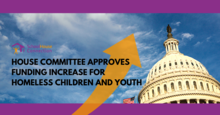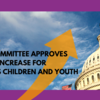0
Policy Brief
Community:
May 5, 2021
In March 2020, the COVID-19 pandemic forced many public housing authorities (PHAs) to quickly adjust their operational procedures to protect their staff while providing emergency assistance to residents. Many PHAs had to close their offices and convert to remote operations almost overnight, while staff focused on supporting their tenants by delivering them food, doing wellness checks for vulnerable residents, and ensuring they had access to and in some cases providing the technology needed for children to attend school remotely and isolated residents to remain connected to friends, family, and service providers. Moreover, as the economic crisis caused by the pandemic worsened, PHAs were under pressure to rapidly adjust rents for tenants who had lost income and process housing choice voucher (HCV) applications so people could use their vouchers to find housing. This brief provides insights into how public housing authorities used additional flexibilities that became available through a series of HUD-issued regulatory and statutory waivers, and makes the case for the potential benefits for added flexibilities for the HCV and public housing programs going forward.
Authored by: Monique King-Viehl, Elizabeth Champion, & Susan J. Popkin for URBAN INSTITUTE
Topics: Advocacy, COVID-19, Data sharing, Health, Housing, Safety, Supportive housing
 Shared by Housing Is
Shared by Housing Is
Housing Is posted a
on May 25, 2021
Monique King-Viehl, Elizabeth Champion, & Susan J. Popkin for URBAN INSTITUTE
In March 2020, the COVID-19 pandemic forced many public housing authorities (PHAs) to quickly adjust their operational procedures to protect their staff while providing emergency assistance to residents.
0
Policy Brief
Community: Postsecondary
Nov 1, 2020
Colleges support students with advising, counseling, or coaching in academics and other skills they need to succeed in school. Some colleges enhance those services through reduced adviser caseloads and more comprehensive, frequent guidance, which can improve students’ semester-to-semester retention and average credits earned. This overview describes important lessons on designing and implementing those services. College leaders and administrators committed to designing, building, managing, and continually supporting enhanced advising services can consult this checklist of recommendations as they redesign or enhance these services — as stand-alone services or as part of multifaceted interventions.
Authored by: Andrea Vasquez & Susan Scrivener for MDRC
Topics: Attendance, Child welfare, Community development, Education, Grade-level proficiency, Post-secondary, Workforce development
 Shared by Housing Is
Shared by Housing Is
Housing Is posted a
on Mar 4, 2021
Andrea Vasquez & Susan Scrivener for MDRC
Colleges support students with advising, counseling, or coaching in academics and other skills they need to succeed in school.
0
Webinar
Community:
Feb 12, 2020
A discussion with attorney Alex Elson from the National Student Legal Defense Network and director of FAIL STATE, Alex Shebanow, to talk about predatory for-profit institutions and how that affects low income residents.
About the film:
Over five years in the making, FAIL STATE investigates the for-profit college industry and the decades-long reports of student loan abuse within the sector. The film’s central thesis: aided by a cabal of politicians, nationwide disinvestment in public colleges and universities, and an unscrupulous desire to maximize profits at all costs, for-profit colleges have exploited millions of low-income and minority students, leaving them with worthless degrees and drowning in student loan debt. With echoes of the subprime mortgage crisis, director Alexander Shebanow traces the rise of the for-profit college industry in American higher education and uncovers a story that the Los Angeles Times calls “truly eye-opening and crucial.” The film premiered to sold-out shows at DOC NYC, SXSW EDU, Cleveland International, and debuted on STARZ in December 2018. Director Alexander Shebanow and Executive Producer Dan Rather were awarded the 2019 William Randolph Hearst Award for Outstanding Professional Media Service for their work on FAIL STATE.
Authored by: CLPHA
Topics: Advocacy, CLPHA, Education, Housing Is Working Group, Legislation & Policy, Low-income, Post-secondary
 Shared by Abra Lyons-Warren
Shared by Abra Lyons-Warren
Abra Lyons-Warren posted a
on Feb 12, 2020
A discussion with attorney Alex Elson from the National Student Legal Defense Network and director of FAIL STATE, Alex Shebanow, to talk about predatory for-profit institutions and how that affects low income residents.
About the film:
Over five years in the making, FAIL STATE investigates the fo
0
Policy Brief
Community:
Dec 4, 2019

In California, more than 3.7 million students were eligible for free or reduced priced school meals in the 2017-2018 school year. For many of those students, school meals are the primary source of regular access to healthy food. When the bell rings at 3:00 or lets out for summer break, many of those students go home to nutritional uncertainty or high-calorie, low-nutrient foods.
For many low-income families, the out-of-school-time food access gap increases family stress: limited budgets are stretched further to cover food, rent, utilities, transportation, medications, and chidcare costs. For very young children, food insecurity can negatively impact brain and physical development. For children of all ages, disrupted access to healthy food can impact behavior, increase risk of obesity, make it harder to concentrate, or exacerbate existing healthy conditions like type 2 diabetes. The impact is not limited to summer, and can lead to a rocky start to the school year, negatively impacting school attendance and students’ ability to effectively participate in school.
Read the full brief to learn how public and affordable housing communities can address food insecurity for children and youth with the help of out-of-school-time USDA child nutrition programs.
Authored by:
Topics: Advocacy, Early childhood, Food insecurity, Health, Healthy homes, Housing, Legislation & Policy, Low-income, Nutrition, Out-of-school time, West Coast, Youth
 Shared by Linda Lu
Shared by Linda Lu
Linda Lu posted a
on Dec 4, 2019
In California, more than 3.7 million students were eligible for free or reduced priced school meals in the 2017-2018 school year. For many of those students, school meals are the primary source of regular access to healthy food.
0
Policy Brief
Community:
Jun 4, 2019
The Department of Housing and Urban Development (HUD) has announced its intention to roll back protections for transgender people experiencing homelessness. The newly proposed rule, which is in the early stages of the rulemaking process and has not yet been publicly posted to the Federal Register, would allow homeless shelters to discriminate based on gender identity, putting transgender people in danger of violence and further housing instability. This is part of a long string of attacks the Trump administration has directed toward the transgender community, such as implementing the infamous military ban, contributing to a pattern that legally perpetuates discrimination against transgender people in this country.
Authored by: Aastha Uprety for Equal Rights Center
Topics: Health, Homelessness, Housing, Legislation & Policy, Racial inequalities
 Shared by Housing Is
Shared by Housing Is
Housing Is posted a
on Jun 13, 2019
Aastha Uprety for Equal Rights Center
The Department of Housing and Urban Development (HUD) has announced its intention to roll back protections for transgender people experiencing homelessness.
0
Webinar
Community:
Jun 5, 2019
This All In webinar will feature projects addressing transportation with a multi-sector data component. FLOURISH: St. Louis, one of the BUILD Health Challenge awardees from St. Louis, MO, will talk about how they are using data to addressing infant mortality through transportation in St. Louis. The Community Transportation Association of America, a national non-profit, will highlight Wheels to Wellness (W2W), a program in Southern Maryland, that allows healthcare staff in rural Maryland to schedule on-demand and pre-scheduled trips using an online portal, and Oklahoma City, OK, who is working with community partners to create a transportation program for parents working towards reunification with their children now in foster care.
Authored by: All In: Data for Community Health
Topics: Data sharing, Health, Partnerships, Racial inequalities, Transportation
 Shared by Housing Is
Shared by Housing Is
Housing Is posted a
on Jun 13, 2019
All In: Data for Community Health
This All In webinar will feature projects addressing transportation with a multi-sector data component. FLOURISH: St. Louis, one of the BUILD Health Challenge awardees from St. Louis, MO, will talk about how they are using data to addressing infant mortality through transportation in St. Louis.
0
Webinar
Community:
Jun 11, 2019
CLPHA’s Education Working Group convened on Tuesday, June 11 to learn about one of the Housing Authority of Kansas City’s (HAKC) newest housing communities: Pemberton Park, a subsidized apartment building that serves grandparents caring for grandchildren. Representatives from HAKC and their partners discussed the process of establishing the grand-family complex, as well as challenges and successes they experienced along the way.
Authored by: CLPHA, Housing Is
Topics: Education, Family engagement, Housing, Housing Is Working Group, Low-income, Partnerships, Seniors, Youth
 Shared by Housing Is
Shared by Housing Is
Housing Is posted a
on Jun 11, 2019
CLPHA’s Education Working Group convened on Tuesday, June 11 to learn about one of the Housing Authority of Kansas City’s (HAKC) newest housing communities: Pemberton Park, a subsidized apartment building that serves grandparents caring for grandchildren.
0
Policy Brief
Community:
May 10, 2019
Policies such as those outlined in the draft proposed rule are having, and will continue to have a significant detrimental impact on survivors of domestic violence and sexual assault by deterring immigrant families, including those with U.S. citizen and Lawful Permanent Resident children, from accessing critical help when they need it. Housing assistance is a vital resource for survivors, giving them the security they need to leave abuse without having to fear that doing so will result in homelessness, as well as providing a safe environment to begin their recovery.
Authored by: Grace Huang for the Asian Pacific Institute on Gender-Based Violence
Topics: Domestic violence, Homelessness, Housing, Immigrants, Legislation & Policy
 Shared by Housing Is
Shared by Housing Is
Housing Is posted a
on Jun 7, 2019
Grace Huang for the Asian Pacific Institute on Gender-Based Violence
Policies such as those outlined in the draft proposed rule are having, and will continue to have a significant detrimental impact on survivors of domestic violence and sexual assault by deterring immigrant families, including those with U.S.
0
Policy Brief
Community:
On May 10, 2019, the Department of Housing and Urban Development (HUD) proposed a rule that would significantly change the agency’s eligibility requirements for federal housing assistance based on immigration status.
Authored by: National Housing Law Project and National Low Income Housing Coalition
Topics: Housing, Immigrants, Legislation & Policy
 Shared by Housing Is
Shared by Housing Is
Housing Is posted a
on Jun 7, 2019
National Housing Law Project and National Low Income Housing Coalition
On May 10, 2019, the Department of Housing and Urban Development (HUD) proposed a rule that would significantly change the agency’s eligibility requirements for federal housing assistance based on immigration status.
0
Webinar
Community:
Mar 1, 2017
This webinar explored strategies for leveraging data to support college and career readiness and success (CCRS) goals for all students, with special emphasis on students in foster care. With access to quality data, education and child welfare agencies can work together to improve educational outcomes and promote CCRS for students in foster care. Presenters discussed a set of emerging practices that serve as examples of how states can use and link data to support CCRS. As states work to fulfill the requirements of the Every Student Succeeds Act (ESSA), this webinar also aims to provide concrete strategies to leverage the data collection and reporting requirements related to students in foster care to achieve CCRS goals.
Authored by: American Youth Policy Forum
Topics: Asset building, Foster care, Post-secondary, Workforce development, Youth
 Shared by Housing Is
Shared by Housing Is
Housing Is posted a
on May 21, 2019
American Youth Policy Forum
This webinar explored strategies for leveraging data to support college and career readiness and success (CCRS) goals for all students, with special emphasis on students in foster care.
0
Webinar
Community:
Explains the provisions in the Family First Prevention Services Act related to reducing reliance on congregate care and explores approaches to achieve this goal. This webinar includes a summary of the provisions and examples from agencies that have successfully reduced the number of children in group care. Presenters from child welfare agencies in Connecticut and Oklahoma share strategies used to increase the number of children who safely remain with their families or in the least restrictive, most family-like setting.
Authored by: Child Welfare Capacity Building Collaborative (U.S. Department of Health and Human Services, Administration for Children and Families)
Topics: Child welfare, Foster care, Youth
 Shared by Housing Is
Shared by Housing Is
Housing Is posted a
on May 21, 2019
Child Welfare Capacity Building Collaborative (U.S. Department of Health and Human Services, Administration for Children and Families)
Explains the provisions in the Family First Prevention Services Act related to reducing reliance on congregate care and explores approaches to achieve this goal.
0
Webinar
Community:
May 16, 2019
Puerto Rico faces enormous challenges due to its history as a colony, the state of its finances, and the devastation caused by Hurricane Maria and the US response to it. This has created a will to rebuild the island’s economy in line with a more community-owned vision. In this webinar, we hear from a number of people involved in and leading that effort.
Authored by: Steve Dubb for NPQ
Topics: Asset building, Community development, U.S. Territories
 Shared by Housing Is
Shared by Housing Is
Housing Is posted a
on May 20, 2019
Puerto Rico faces enormous challenges due to its history as a colony, the state of its finances, and the devastation caused by Hurricane Maria and the US response to it. This has created a will to rebuild the island’s economy in line with a more community-owned vision.
0
Policy Brief
Community:
May 9, 2019
On May 9, the House Appropriations Committee passed its FY2020 appropriations bill for Labor, Health and Human Services, and Education. The House bill includes $100 million in FY2020 funding for the McKinney-Vento Act’s Education for Homeless Children and Youth (EHCY) program. This represents a 7% increase over the FY2019 level; if enacted, it would represent a 30% increase in EHCY funding since FY2017.
Authored by: SchoolHouse Connection
Topics: Child welfare, Funding, Homelessness, Housing, Legislation & Policy
 Shared by Housing Is
Shared by Housing Is
Housing Is posted a
on May 15, 2019
On May 9, the House Appropriations Committee passed its FY2020 appropriations bill for Labor, Health and Human Services, and Education. The House bill includes $100 million in FY2020 funding for the McKinney-Vento Act’s Education for Homeless Children and Youth (EHCY) program.
0
Policy Brief
Community:
May 2, 2019
Spring is in full bloom in Washington, D.C., and so are key pieces of legislation that FRAC is monitoring and weighing in on. Below is an overview of legislative proposals in the 116th Congress to look out for that would impact critical anti-hunger and anti-poverty programs.
Authored by: Lauren Badger for Food Research & Action Center
Topics: Asset building, Food insecurity, Legislation & Policy, Nutrition, Seniors
 Shared by Housing Is
Shared by Housing Is
Housing Is posted a
on May 6, 2019
Lauren Badger for Food Research & Action Center
Spring is in full bloom in Washington, D.C., and so are key pieces of legislation that FRAC is monitoring and weighing in on. Below is an overview of legislative proposals in the 116th Congress to look out for that would impact critical anti-hunger and anti-poverty programs.
0
Policy Brief
Community:
May 1, 2019
Stable housing plays a vital role in people’s recovery from substance use disorders (SUDs). An inability to pay rent and the threat of losing housing can lead to stress that triggers substance misuse and relapse. People experiencing homelessness who also have SUDs typically find it difficult to address their substance use without a safe place to live, because they often use alcohol or drugs to cope with the dangers of life on the streets. In 2018, Congress passed the SUPPORT for Patients and Communities Act (known as the SUPPORT Act), which provided a variety of new programs and funding opportunities to help states and localities address the opioid epidemic and broadly help people with substance use disorders.
Authored by: Center on Budget and Policy Priorities
Topics: Homelessness, Housing, Legislation & Policy, Low-income, Mental health, Research, Substance abuse
 Shared by Housing Is
Shared by Housing Is
Housing Is posted a
on May 2, 2019
Center on Budget and Policy Priorities
Stable housing plays a vital role in people’s recovery from substance use disorders (SUDs). An inability to pay rent and the threat of losing housing can lead to stress that triggers substance misuse and relapse.
0
Policy Brief
Community:
Congress has an important opportunity in 2019 to improve the health of millions of our nation’s children by passing a strong reauthorization that protects and strengthens the child nutrition programs. These successful, cost-effective federal nutrition programs play a critical role in helping children in low-income families achieve access to child care, educational, and enrichment activities while improving overall nutrition, health, development, and academic achievement.
Authored by: Feeding America and Food Research & Action Center
Topics: Child welfare, Early childhood, Food insecurity, Funding, Legislation & Policy, Low-income, Nutrition
 Shared by Housing Is
Shared by Housing Is
Housing Is posted a
on May 1, 2019
Feeding America and Food Research & Action Center
Congress has an important opportunity in 2019 to improve the health of millions of our nation’s children by passing a strong reauthorization that protects and strengthens the child nutrition programs.
0
Webinar
Community:
Apr 10, 2019
Advocacy is everyone's job and it is essential to the children and communities we serve. CLPHA’s Education Working Group hosted a webinar to learn about advocacy efforts to build support and investment in housing. Representatives from Partnership for Children and Youth (PCY) – a California-based advocacy organization that promotes and supports learning opportunities for underserved students – discussed strategies for providing, sustaining, and increasing access to Out-of-School-Time services in housing. PCY also touched on a range of advocacy strategies and preliminary results from the Save After School Campaign in California.
Authored by: CLPHA
Topics: CLPHA, Education, Housing, Housing Is Working Group, Legislation & Policy, Out-of-school time, Partnerships, Youth
 Shared by Housing Is
Shared by Housing Is
Housing Is posted a
on Apr 10, 2019
Advocacy is everyone's job and it is essential to the children and communities we serve. CLPHA’s Education Working Group hosted a webinar to learn about advocacy efforts to build support and investment in housing.
0
Policy Brief
Community:
The Homeless Children and Youth Act of 2019 (H.R. 2001) is a bipartisan bill that removes barriers to U.S. Department of Housing and Urban Development (HUD) homelessness assistance for children, youth and families in the following ways.
Authored by:
Topics: Early childhood, Homelessness, Housing, Legislation & Policy, Youth
 Shared by Housing Is
Shared by Housing Is
Housing Is posted a
on Apr 4, 2019
The Homeless Children and Youth Act of 2019 (H.R. 2001) is a bipartisan bill that removes barriers to U.S. Department of Housing and Urban Development (HUD) homelessness assistance for children, youth and families in the following ways.
0
Policy Brief
Community:
Mar 1, 2019
A brief to help state and local agencies identify opportunities to align and leverage policies, programs, and funding across the three laws to support the education-to-workforce pipeline; a workbook to facilitate cross-agency conversations to identify and plan for alignment opportunities across ESSA, Perkins V, IDEA and WIOA; and an interactive tool that identifies specific language in the laws that address college and readiness topics and help state education agencies and local education agencies find new or greater alignment opportunities in their plans.
Authored by: College & Career Readiness & Success Center
Topics: Asset building, Education, Legislation & Policy, Post-secondary, Workforce development, Youth
 Shared by Mica O'Brien
Shared by Mica O'Brien
Mica O'Brien posted a
on Apr 2, 2019
College & Career Readiness & Success Center
A brief to help state and local agencies identify opportunities to align and leverage policies, programs, and funding across the three laws to support the education-to-workforce pipeline; a workbook to facilitate cross-agency conversations to identify and plan for alignment opportunities across ESSA
0
Policy Brief
Community:
Oct 1, 2016
Emerging health care financing models require much more sophisticated actuarial calculations than previous payment arrangements, often taking into account risk factors such as homelessness. Homelessness also has direct implications for clinical treatment decisions and integrated care models and should be noted in individual patient records. This policy brief provides a rationale for using the ICD-10-CM code for homelessness, outlines the challenges to maximizing this code, and offers strategies to consider to ensure health care providers ask about homelessness and record patients’ housing status. This data is highly relevant to clinicians and administrators at health centers, hospitals, state Medicaid systems, Medicaid managed care organizations, and public health departments.
Authored by: National Health Care for the Homeless Council
Topics: Health, Homelessness, Housing, Legislation & Policy, Low-income, Medicaid / Medicare
 Shared by Mica O'Brien
Shared by Mica O'Brien
Mica O'Brien posted a
on Mar 26, 2019
National Health Care for the Homeless Council
Emerging health care financing models require much more sophisticated actuarial calculations than previous payment arrangements, often taking into account risk factors such as homelessness.
0
Webinar
Community:
Feb 28, 2019
Join us for an examination of how cross-sector data sharing initiatives are being used to tackle tough public health problems. The webinar will provide an in-depth look at a cross-sector collaboration in Illinois between public health, law enforcement, emergency medical services, a fire department and a jail aimed at addressing the needs of high utilizers of behavioral health services.
Authored by: The Network for Public Health Law
Topics: Criminal justice, Data sharing, Health, Mental health, Midwest, Partnerships, Safety, Stability
 Shared by Housing Is
Shared by Housing Is
Housing Is posted a
on Mar 6, 2019
The Network for Public Health Law
Join us for an examination of how cross-sector data sharing initiatives are being used to tackle tough public health problems.
0
Policy Brief
Community:
This annotated resource compilation is intended to help state and local agencies access information and resources needed to better understand the federal legal protections and requirements associated with datasets collected by federal agencies or as part of a federally funded program.
Authored by: The Network for Public Health Law
Topics: Data sharing, Disabilities, Early childhood, Education, Health, Homelessness, Legislation & Policy, Post-secondary
 Shared by Mica O'Brien
Shared by Mica O'Brien
Mica O'Brien posted a
on Feb 20, 2019
The Network for Public Health Law
This annotated resource compilation is intended to help state and local agencies access information and resources needed to better understand the federal legal protections and requirements associated with datasets collected by federal agencies or as part of a federally funded program.
0
Webinar
Community:
Feb 12, 2019
During CLPHA’s Education Working Group Webinar on addressing school attendance at PHAs, representatives from the King County Housing Authority and the national nonprofit Attendance Works presented on tools for addressing chronic absenteeism, as well as strategies for fostering a culture of attendance among residents.
Authored by: CLPHA, Housing Is
Topics: Attendance, CLPHA, Dual-generation, Education, Housing, Housing Is Working Group, Low-income, Metrics, Partnerships, Place-based
 Shared by Housing Is
Shared by Housing Is
Housing Is posted a
on Feb 12, 2019
During CLPHA’s Education Working Group Webinar on addressing school attendance at PHAs, representatives from the King County Housing Authority and the national nonprofit Attendance Works presented on tools for addressing chronic absenteeism, as well as strategies for fostering a culture of attendanc
0
Webinar
Community:
Jul 17, 2018
Featuring Ellen Childs, PhD, from Boston University School of Public Health and Vaughan Rees, PhD, from Harvard T.H. Chan School of Public Health.
Authored by: Building Success
Topics: Health, Housing, Legislation & Policy, Smoke-free
 Shared by Housing Is
Shared by Housing Is
Housing Is posted a
on Feb 4, 2019
Featuring Ellen Childs, PhD, from Boston University School of Public Health and Vaughan Rees, PhD, from Harvard T.H. Chan School of Public Health.
0
Policy Brief
Community:
More than one-third of adult public housing residents in the US smoke—totaling approximately 400,000 smokers, putting other residents and staff at risk of negative health effects.
Authored by: Building Success
Topics: Asthma, Health, Housing, Legislation & Policy, Place-based, Smoke-free
 Shared by Housing Is
Shared by Housing Is
Housing Is posted a
on Feb 4, 2019
More than one-third of adult public housing residents in the US smoke—totaling approximately 400,000 smokers, putting other residents and staff at risk of negative health effects.
 Shared by Housing Is
on May 25, 2021
Shared by Housing Is
on May 25, 2021
 Shared by Housing Is
on Mar 4, 2021
Shared by Housing Is
on Mar 4, 2021
 Shared by Abra Lyons-Warren
on Feb 12, 2020
Shared by Abra Lyons-Warren
on Feb 12, 2020

 Shared by Linda Lu
on Dec 4, 2019
Shared by Linda Lu
on Dec 4, 2019

 Shared by Housing Is
on Jun 13, 2019
Shared by Housing Is
on Jun 13, 2019
 Shared by Housing Is
on Jun 13, 2019
Shared by Housing Is
on Jun 13, 2019
 Shared by Housing Is
on Jun 11, 2019
Shared by Housing Is
on Jun 11, 2019
 Shared by Housing Is
on Jun 7, 2019
Shared by Housing Is
on Jun 7, 2019
 Shared by Housing Is
on Jun 7, 2019
Shared by Housing Is
on Jun 7, 2019
 Shared by Housing Is
on May 21, 2019
Shared by Housing Is
on May 21, 2019
 Shared by Housing Is
on May 21, 2019
Shared by Housing Is
on May 21, 2019
 Shared by Housing Is
on May 20, 2019
Shared by Housing Is
on May 20, 2019

 Shared by Housing Is
on May 15, 2019
Shared by Housing Is
on May 15, 2019


 Shared by Housing Is
on May 6, 2019
Shared by Housing Is
on May 6, 2019

 Shared by Housing Is
on May 2, 2019
Shared by Housing Is
on May 2, 2019
 Shared by Housing Is
on May 1, 2019
Shared by Housing Is
on May 1, 2019
 Shared by Housing Is
on Apr 10, 2019
Shared by Housing Is
on Apr 10, 2019
 Shared by Housing Is
on Apr 4, 2019
Shared by Housing Is
on Apr 4, 2019

 Shared by Housing Is
on Mar 6, 2019
Shared by Housing Is
on Mar 6, 2019

 Shared by Housing Is
on Feb 12, 2019
Shared by Housing Is
on Feb 12, 2019
 Shared by Housing Is
on Feb 4, 2019
Shared by Housing Is
on Feb 4, 2019
 Shared by Housing Is
on Feb 4, 2019
Shared by Housing Is
on Feb 4, 2019




